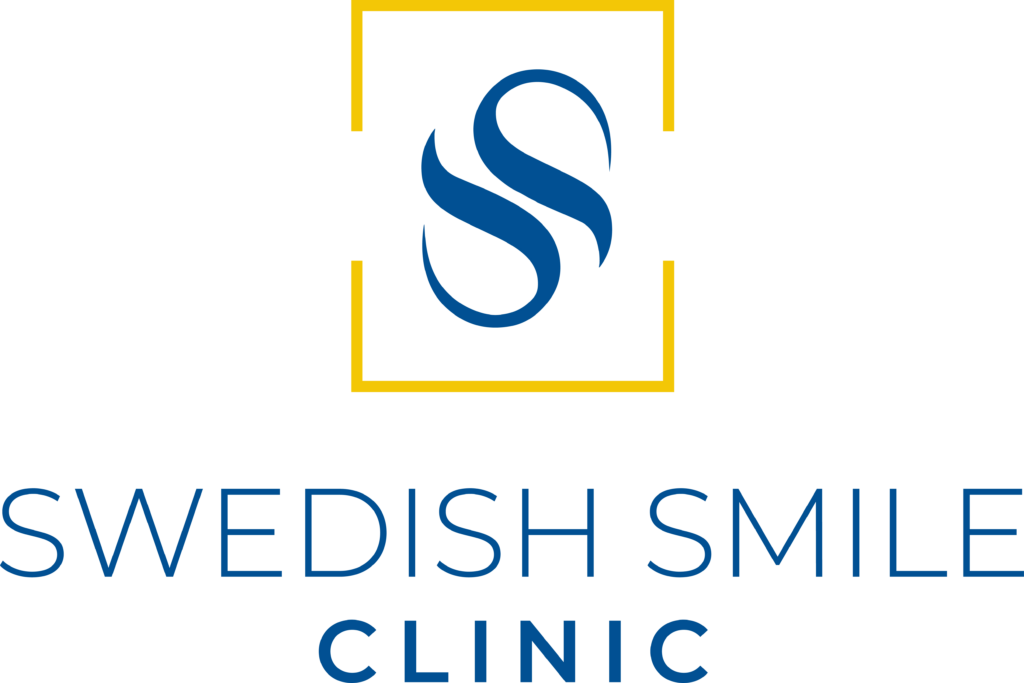Dental & Oral Surgery
- Oral Implants
- Teeth Extractions
- Root Canal Treatment
- Gum Disease Managment
- Crowns, Bridges And Veneers
- Smile Makeover
- Aesthetic Fillings
- Professional Teeth Cleaning
- Teeth Whitening
- Night guards
- Sports guards
At Swedish Smile Clinic we exclusively use dental implants of the highest standards, using the safest materials and technology.
How does it work?
Dental implants are small titanium screws that are placed in the jawbone. The procedure is done under local anaesthetic, however, should the patient so desire, we offer to perform the procedure under sedation. The procedure is completely pain-free.
Implant therapy can be used to replace one or several teeth. Your implant surgeon will discuss the all the different options that may be beneficial to you.
In some cases, where there is insufficient amount of jawbone, a bone graft may be placed to support the implant.
After the implant is placed, the bone starts grow around the titanium screw, anchoring it securely inside the bone, allowing a crown to be placed on top of the implant and thereby replacing the lost tooth in both function and form. The integration between the implant and the bone usually takes up to twelve weeks.
During the healing period you will be fitted with a provisional crown if indicated. Your implant surgeon will discuss the complete procedure and is happy to answer any questions you may have during your consultation.
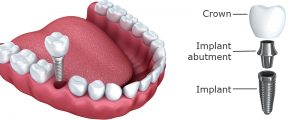
Looking after the implant tooth
Good oral hygiene is just as important with implant teeth as it is with natural teeth. Although you cannot get tooth decay (caries) in an implant tooth, gum disease may affect implant teeth in the same way it may affect natural teeth. Therefore, it is advised to have regular dental check-ups and dental hygiene support treatments as well as following the oral hygiene home care regimen that your dentist will provide you with. This will not only benefit the implant tooth, but your entire dental and oral health. Implant teeth can be damaged by trauma, the same way as natural teeth, so protect yourself and your teeth when playing sports by wearing a protective sports guard.
We make every effort in the preservation of our patients’ teeth, however sometimes, due to vast tooth decay, advanced gum disease or severe trauma, the tooth cannot be saved. In these cases, extraction of the severely damaged tooth may be the best and healthiest option.
The procedure is done under local anaesthetics and your dentist will ensure that the procedure is completely pain-free. Before the procedure you will also be advised on all appropriate prosthodontic treatment (tooth replacement) options, did you wish to replace the missing tooth after the extraction.
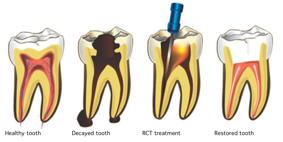
Inside the tooth is a nerve (aka pulp). The pulp can become damaged due to tooth decay, trauma, or previous restorative treatments etc. This in turn can lead to pain, swelling and infection of the nerve and surrounding tissues. The aim of the root canal treatment (RCT) is to remove the inflamed or infected tissue from inside the root canals. Once treated, the root canals are sealed with a special material. Afterwards, the tooth is restored with a filling or crown. Local anaesthetic is used, making the procedure pain-free. The RCT allows you to save a tooth that would otherwise have to be extracted and replaced. At Swedish Smile Clinic we have Endodontist (root canal specialist dentist) who is happy to help you.
Gum disease or Periodontitis is a multifactorial disease. It is aggravated by certain types of bacteria, smoking, diabetes and genetic factors.
By maintaining an excellent oral hygiene at home whilst having regular treatment visits with your Periodontist (gum disease specialist dentist), General dentist or Hygienist, the progression of the gum disease can be stopped, and improved. Deep, persisting pockets caused by periodontal disease can be corrected through pocket depth reduction. This procedure is used to clean the pockets and secure the gum tissue in its original place. Reducing pocket depth and eliminating existing bacteria are important to prevent damage caused by the progression of periodontal disease and to help maintain your healthy smile.
At Swedish Smile Clinic we have Periodontist (Gum Disease Specialist Dentist) who is happy to help you.
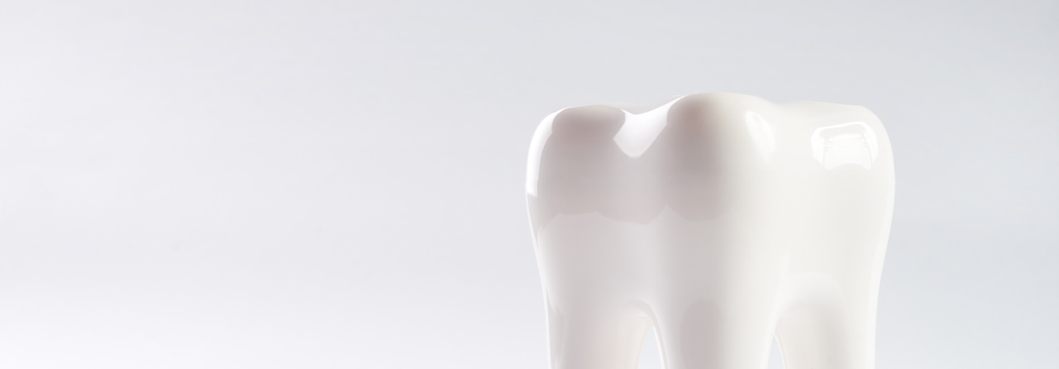
Crowns
A crown is a recommended procedure for patients who have a substantial tissue loss on a tooth following a failed filling, or tooth decay (caries). It is also a common procedure if you have had a root canal, as it reduces the risk of tooth fracture. The crown is placed over your natural tooth, but it can also be placed over a dental implant.
The dentist will take an impression of your bite for crown fabrication. The impression will then be sent to a lab to create your customised crown using porcelain prosthetics.
While awaiting your permanent crown your cosmetic dentist will fit a temporary crown which will be customised from your impression.
When your permanent crown has been created, your cosmetic dentist will then fit your custom designed crown to your bite.
Bridges
Bridges are recommended as a less invasive alternative to dental implants for replacing a missing tooth (or teeth).
There are different types of bridges and your cosmetic dentist will discuss which type of treatment may suite you the best.
Veneers
Veneers are a minimal invasive alternative to enhance the appearance of teeth cosmetically, whether you want to treat one tooth or more, veneers correct tooth appearance and are customised in shape and colour. Veneers are created in a dental laboratory using a specific type of porcelain which is both strong and have resistance to future staining.

Smile Makeover
A bright and beautiful smile brings as much joy to the people we meet, as to the wearer. But sometimes nature needs a helping hand from a cosmetic dentist in order for our smile to reach its full potential. During your consultation, your cosmetic dentist will suggest a variety of treatment options based on your starting point and your goals. Your cosmetic dentist will be with you every step of the way to ensure that you get a smile you can be proud of. Let’s take the journey together!
Before & After
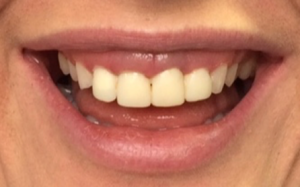
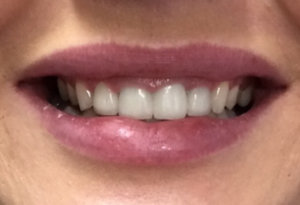
Tooth fillings are used to restore your dental health by removing the decayed or damaged part of the tooth and preventing the spread of tooth decay. Composite fillings can also be used to cosmetically correct and improve the look of the teeth.
Your cosmetic dentist will use composite resin to restore the tooth. Composite fillings are safe, long-lasting, durable and biocompatible, as well as aesthetically the best alternative for fillings, as they can be customised in colour and shape to match your natural teeth, making the restoration looking very natural.
Using minimal invasive techniques, your dentist aims to preserve as much as possible of the natural healthy parts of the tooth for improved long-term durability and vitality.

The vast majority of dental and gum diseases can be prevented by maintaining a good oral hygiene. Brushing your teeth (all 5 sides of the them!) for 2 mins in the morning and 2 mins before bedtime with a tooth paste containing Fluoride, goes a long way in maintaining good oral health.
Furthermore, we all have to use either dental floss or interdental brushes in order to clean those areas between the teeth, where the toothbrush cannot reach. But even with the best oral hygiene, tartar and staining from food and drink may still need to be removed by professional cleaning, as they often cannot be removed at home. Regular check-ups and hygiene support treatments, not only helps identifying dental and gum diseases at an early stage, enabling us to easier manage the issues and prevent further progression, but it will also make your teeth feel cleaner and whiter.

Teeth can have many different shades, and some people have genetically darker teeth than others. Teeth can also become darker over time for many reasons, sometimes it is caused by staining from tobacco, food or drink, such as coffee, tea or red wine.
Some discolouration is due to superficial staining and can be removed or improved by professional cleaning. However, intrinsic discolouration (deep staining inside the tooth) cannot be polished away. In these cases, we can safely and comfortably whiten the enamel on the teeth without any risk of damage, creating a pearly white smile.
Bruxism is excessive teeth grinding or jaw clenching, and is a very common parafunction. It is estimated that up to 35% of the general population is grinding or clenching the jaw. The most common symptoms associated with bruxism are teeth hypersensitivity, aching jaw/ face muscles, headaches, excessive tooth wear and damage to dental restorations (e.g. fillings, crowns, bridges etc). It is not uncommon for the patient to be unaware of the condition, as it often happens when the patient is sleeping, however the effects of bruxism can be both painful and expensive.
Although there is no ‘cure’ for bruxism, we can limit the damage and manage the condition by protecting the teeth with a night guard, and in some cases weaken the over-active muscles by injecting botulinum toxin to help the muscles relax. There are also specific relaxation exercised that your dentist will advice you about. During your consultation, your dentist will assess your teeth, jaws, neck, muscles and temporomandibular joints (TMJ) and discuss all appropriate treatment options with you.
We all know the health benefits of playing sports and exercising, however some physical activities can put your teeth at risk.
Tactile sports such as rugby, martial arts and boxing are of course associated with a higher risk of dental trauma, but accidents can happen in most sports. As dentists we unfortunately often see sports-related dental injuries, which in most cases could have been avoided if a sports guard had been worn.
Ask your dentist how a sports guard could keep your smile safe.
We all know the health benefits of playing sports and exercising, however some physical activities can put your teeth at risk.
Tactile sports such as rugby, martial arts and boxing are of course associated with a higher risk of dental trauma, but accidents can happen in most sports. As dentists we unfortunately often see sports-related dental injuries, which in most cases could have been avoided if a sports guard had been worn.
Ask your dentist how a sports guard could keep your smile safe.
The vast majority of dental and gum diseases can be prevented by maintaining a good oral hygiene. Brushing your teeth (all 5 sides of the them!) for 2 mins in the morning and 2 mins before bedtime with a tooth paste containing Fluoride, goes a long way in maintaining good oral health.
Furthermore, we all have to use either dental floss or interdental brushes in order to clean those areas between the teeth, where the toothbrush cannot reach. But even with the best oral hygiene, tartar and staining from food and drink may still need to be removed by professional cleaning, as they often cannot be removed at home. Regular check-ups and hygiene support treatments, not only helps identifying dental and gum diseases at an early stage, enabling us to easier manage the issues and prevent further progression, but it will also make your teeth feel cleaner and whiter.
Tooth fillings are used to restore your dental health by removing the decayed or damaged part of the tooth and preventing the spread of tooth decay. Composite fillings can also be used to cosmetically correct and improve the look of the teeth.
Your cosmetic dentist will use composite resin to restore the tooth. Composite fillings are safe, long-lasting, durable and biocompatible, as well as aesthetically the best alternative for fillings, as they can be customised in colour and shape to match your natural teeth, making the restoration looking very natural.
Using minimal invasive techniques, your dentist aims to preserve as much as possible of the natural healthy parts of the tooth for improved long-term durability and vitality.

Gum disease or Periodontitis is a multifactorial disease. It is aggravated by certain types of bacteria, smoking, diabetes and genetic factors.
By maintaining an excellent oral hygiene at home whilst having regular treatment visits with your Periodontist (gum disease specialist dentist), General dentist or Hygienist, the progression of the gum disease can be stopped, and improved. Deep, persisting pockets caused by periodontal disease can be corrected through pocket depth reduction. This procedure is used to clean the pockets and secure the gum tissue in its original place. Reducing pocket depth and eliminating existing bacteria are important to prevent damage caused by the progression of periodontal disease and to help maintain your healthy smile.
At Swedish Smile Clinic we have Periodontist (Gum Disease Specialist Dentist) who is happy to help you.
We make every effort in the preservation of our patients’ teeth, however sometimes, due to vast tooth decay, advanced gum disease or severe trauma, the tooth cannot be saved. In these cases, extraction of the severely damaged tooth may be the best and healthiest option.
The procedure is done under local anaesthetics and your dentist will ensure that the procedure is completely pain-free. Before the procedure you will also be advised on all appropriate prosthodontic treatment (tooth replacement) options, did you wish to replace the missing tooth after the extraction.
Bruxism is excessive teeth grinding or jaw clenching, and is a very common parafunction. It is estimated that up to 35% of the general population is grinding or clenching the jaw. The most common symptoms associated with bruxism are teeth hypersensitivity, aching jaw/ face muscles, headaches, excessive tooth wear and damage to dental restorations (e.g. fillings, crowns, bridges etc). It is not uncommon for the patient to be unaware of the condition, as it often happens when the patient is sleeping, however the effects of bruxism can be both painful and expensive.
Although there is no ‘cure’ for bruxism, we can limit the damage and manage the condition by protecting the teeth with a night guard, and in some cases weaken the over-active muscles by injecting botulinum toxin to help the muscles relax. There are also specific relaxation exercised that your dentist will advice you about. During your consultation, your dentist will assess your teeth, jaws, neck, muscles and temporomandibular joints (TMJ) and discuss all appropriate treatment options with you.
At Swedish Smile Clinic we exclusively use dental implants of the highest standards, using the safest materials and technology.
How does it work?
Dental implants are small titanium screws that are placed in the jawbone. The procedure is done under local anaesthetic, however, should the patient so desire, we offer to perform the procedure under sedation. The procedure is completely pain-free.
Implant therapy can be used to replace one or several teeth. Your implant surgeon will discuss the all the different options that may be beneficial to you.
In some cases, where there is insufficient amount of jawbone, a bone graft may be placed to support the implant.
After the implant is placed, the bone starts grow around the titanium screw, anchoring it securely inside the bone, allowing a crown to be placed on top of the implant and thereby replacing the lost tooth in both function and form. The integration between the implant and the bone usually takes up to twelve weeks.
During the healing period you will be fitted with a provisional crown if indicated. Your implant surgeon will discuss the complete procedure and is happy to answer any questions you may have during your consultation.

Looking after the implant tooth
Good oral hygiene is just as important with implant teeth as it is with natural teeth. Although you cannot get tooth decay (caries) in an implant tooth, gum disease may affect implant teeth in the same way it may affect natural teeth. Therefore, it is advised to have regular dental check-ups and dental hygiene support treatments as well as following the oral hygiene home care regimen that your dentist will provide you with. This will not only benefit the implant tooth, but your entire dental and oral health. Implant teeth can be damaged by trauma, the same way as natural teeth, so protect yourself and your teeth when playing sports by wearing a protective sports guard.
Meet Our Team

Compassionate care from our team of experts
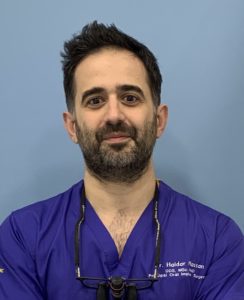
Dr Haidar Hassan
Principal Oral Implant Surgeon
DDS, MFDS RCPS(Glasg), FFGDP(UK), Dip ImpDent RCS(Eng), Dip DentSed, MSc Oral Imp, MSc Aesth Med, PhD, FDSRCS(Eng), FHEA – GDC NO. 179 416
Dr Hassan graduated from the University of Gothenburg (Sweden) and has
subsequently completed two Master’s degrees: one in Oral
Implantology (distinction) and another in Aesthetic
Medicine (distinction). In 2018, he completed his PhD at the University of
Gothenburg.
Dr Hassan is a Clinical Senior Lecturer and Module Lead in Aesthetic Medicine/Oral
Surgery at the Blizard Institute (Academic Plastic Surgery Programmes)/Royal
London Hospital (Queen Mary University of London) and a
Senior Lecturer/Examiner/PhD supervisor in oral implantology at King Juan Carlos
University (Madrid, Spain). He is also a visiting clinical researcher at
the Department of Natural Sciences (Middlesex University of London). He has received a Diploma in Oral Implantology and a Fellowship from the
Royal College of Surgeons (England).
In 2019, Dr Hassan was awarded the British Council of Aesthetic Medicine Quality
Research Award for his clinical paper on “Injectable platelet rich fibrin (i-PRF) in Aesthetic
Medicine”. His research interests include regenerative treatments/materials, platelet-
rich derivates (PRF/allogenic growth factors), sedation and oral implants.
He frequently attends and speaks at oral implant research congresses and aesthetic
medicine meetings, and his research has been published in various peer-reviewed
journals.
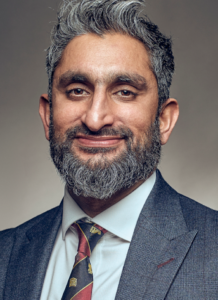
Dr Nabeel Bhatti
Consultant in Oral & Maxillofacial Surgery
BDS, MFDS RCS(Eng), MBBS, MRCS, FRCS – GMC NO.7043459
Nabeel is both dentally and medically qualified, and began his training as a dental undergraduate at the Royal London Hospital qualifying in 2002. He then left London to work on the south coast in general practice and then as a hospital oral surgeon. He then completed his medical training at Kings college Hospital London, and completed his basic surgical training in Kent and Sussex, before returning to London and higher training in all aspects of Oral and Maxillofacial Surgery on the London Oral and Maxillofacial Surgery Training rotation including time at UCLH, GOSH, and Barts Health NHS Trust.
Nabeel now has a busy NHS practice as a Consultant Surgeon at the Royal London Hospital, Barts NHS trust, where in addition to his specialist trauma practice he sees and treats general oral and maxillofacial surgery referrals.
Nabeel is an Honorary Senior Clinical Lecturer at QMUL, and is currently lead examiner on the Craniofacial Trauma MSc.
His Research interests are the acute and the chronic management of mandibular jaw joint trauma
Away from the hospital and the clinic, Nabeel is married and a father of 3 sons, he spends his free time with his family.
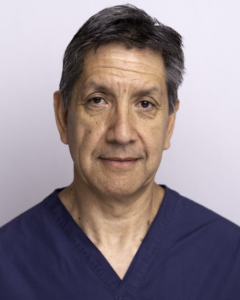
Dr Eduardo Miguel Aranibar Quiroz
Specialist in endodontics
DDS – GDC NO. 79953
After graduating from the University of Gothenburg, Sweden in 1998, he worked as a general dentist for 2 years, and as a Clinical Instructor to undergraduate dental students from 2002 to 2004.
He pursued his interest in endodontics by taking the 3 year full time specialist training programme in Endodontics at the University of Gothenburg, he graduated in 2007 and then held a post as Endodontist at the University Clinics in Gothenburg, Sweden, working part time as a clinician as well as clinical tutor at the specialist programme in endodontics until 2013.
Eduardo Miguel has been working in the UK since 2007, taking on complicated and challenging referred root canal treatment cases. He was admitted to the UK specialist list in endodontics the same year.
Professionally Eduardo Miguel is a member of the British Endodontic Society, the European Society of Endodontology (ESE) and the Swedish Endodontic Society. He is fluent in Spanish, Swedish and English.

Dr Panayiotis Kaimakamis
Specialist in Periodontology
BDS, MFDS RCS(Ed), PGCert, DClinDent Perio, MPerio RCS(Ed) – GDC NO. 230390
Panayiotis, better known as Pano, graduated with a Bachelor of Dental Surgery from Guys, Kings and St Thomas’s Dental Institute in 2012. He completed his vocational training in West Sussex and was awarded his Membership with the Royal College of Surgeons (MJDF RCS) shortly after.Following this, Pano worked as a Senior House Officer in the Maxillofacial and Oral Surgery Department at the Royal London Hospital and Whipps Cross Hospital, where he assisted and gained insight into complex surgical procedures and medical and dental emergencies. Being a major trauma centre for London, Pano has worked on call in A&E and hospital wards, as well as in clinics and operating theatres.
Pano has also has experience in general private practice within the UK and abroad, having spent time working in Singapore. It was throughout this period in time that he developed an interest in Periodontics.
In 2016, he returned to London and commenced his Doctorate of Clinical Dentistry in Periodontology at the Barts and the London School of Medicine and Dentistry, which he recently completed. Following this three-year postgraduate specialist training programme, he also passed the Speciality Membership in Periodontics exam by the Royal College of Surgeons, Edinburgh.
Besides private practice, Pano is a part time Clinical Research Fellow at the Centre of Oral and Clinical Research at the Royal London Dental Institute. There he is part of a multidisciplinary team involved in ongoing periodontal research studies with a keen interest in emerging minimally invasive surgical and non-surgical procedures.
Besides private practice, Pano is a keen traveller and photographer and enjoys exploring different parts of the world, different cultures and cuisines and dabbles in film photography.
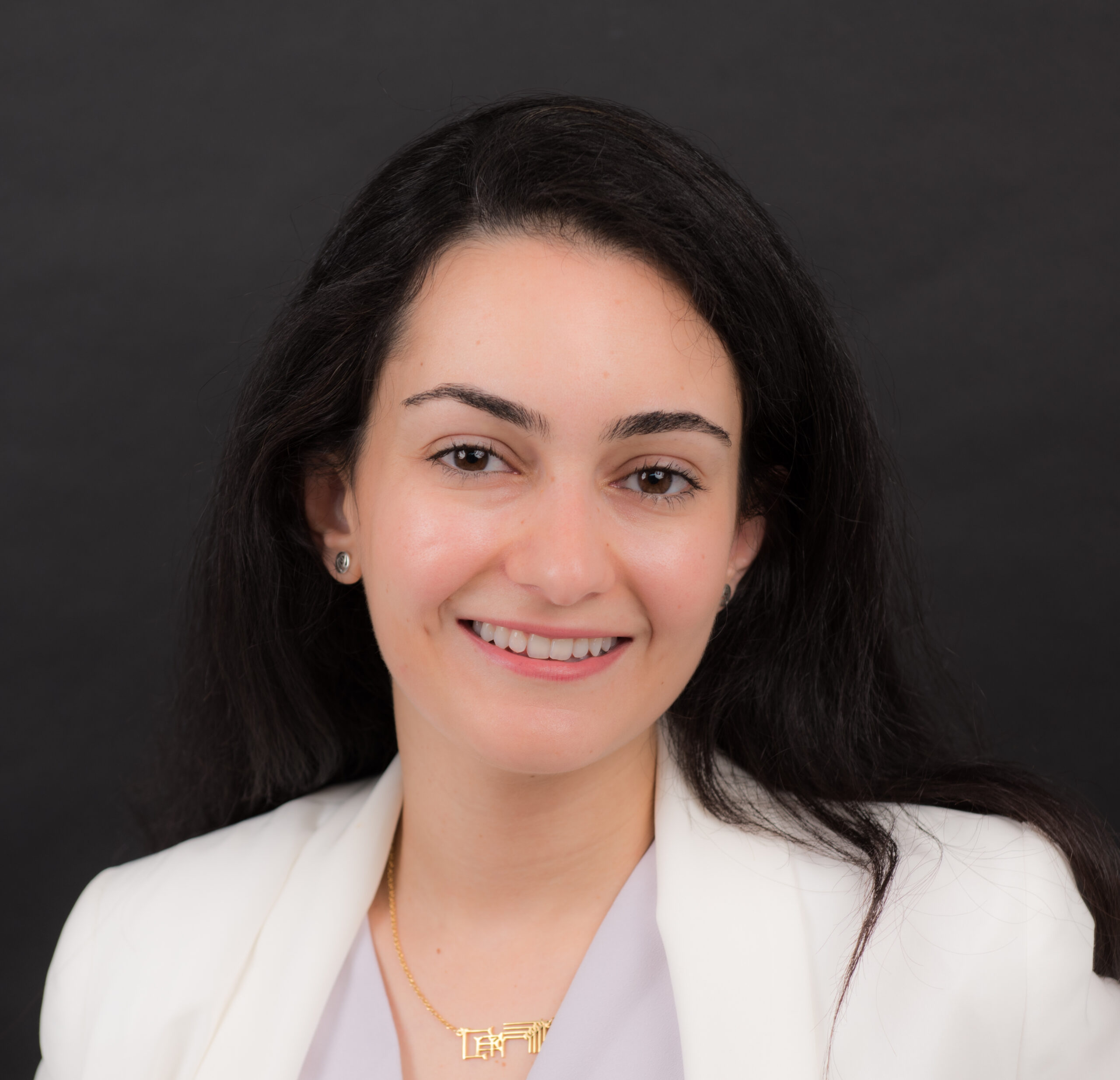
Dr Sarah Waia
Specialist in Prosthodontics
DDS, MFDS RCSEd, DClinDent Pros (Lond), M Prost RCSEd, FHEA –
GDC NO. 262761
DDS, MFDS RCSEd, DClinDent Pros (Lond), M Prost RCSEd, FHEA –
GDC NO. 262761
Alongside her work with our team she is a clinical lecturer in Prosthodontics
at Bart’s and The London School of Medicine and Dentistry
(teaching postgraduate dental students on the DClinDent program).
Sarah was awarded a Doctorate of Clinical Dentistry in Prosthodontics from Queen
Mary College at the University of London after which also gained her
Membership in Prosthodontics from the Royal College of Surgeons of Edinburgh.
This signified completion of her specialist training. Sarah was subsequently
accepted onto the Specialist register in Prosthodontics with the General dental
council (UK). She is a member of the British Society of Prosthodontics and the
International Team for Implantology and continues to play an active role in dental academia.
At our practice, Sarah is dedicated to offering a fully comprehensive range of Specialist
Prosthodontics and advanced Dentistry – Either as a support service to general practitioners,
directly for patients who may require a second opinion or working collaboratively multi-discipliary cases with her colleagues when required. Sarah Specialist interest covers thecomplications of tooth wear, the failing dentition, temperomandibular dysfuntion and the full range of dental restorative treatments from routine to complex rehabilitation including the full range of implant dentistry. Her at aim is to provide a service convenient to local dentists and their patients.
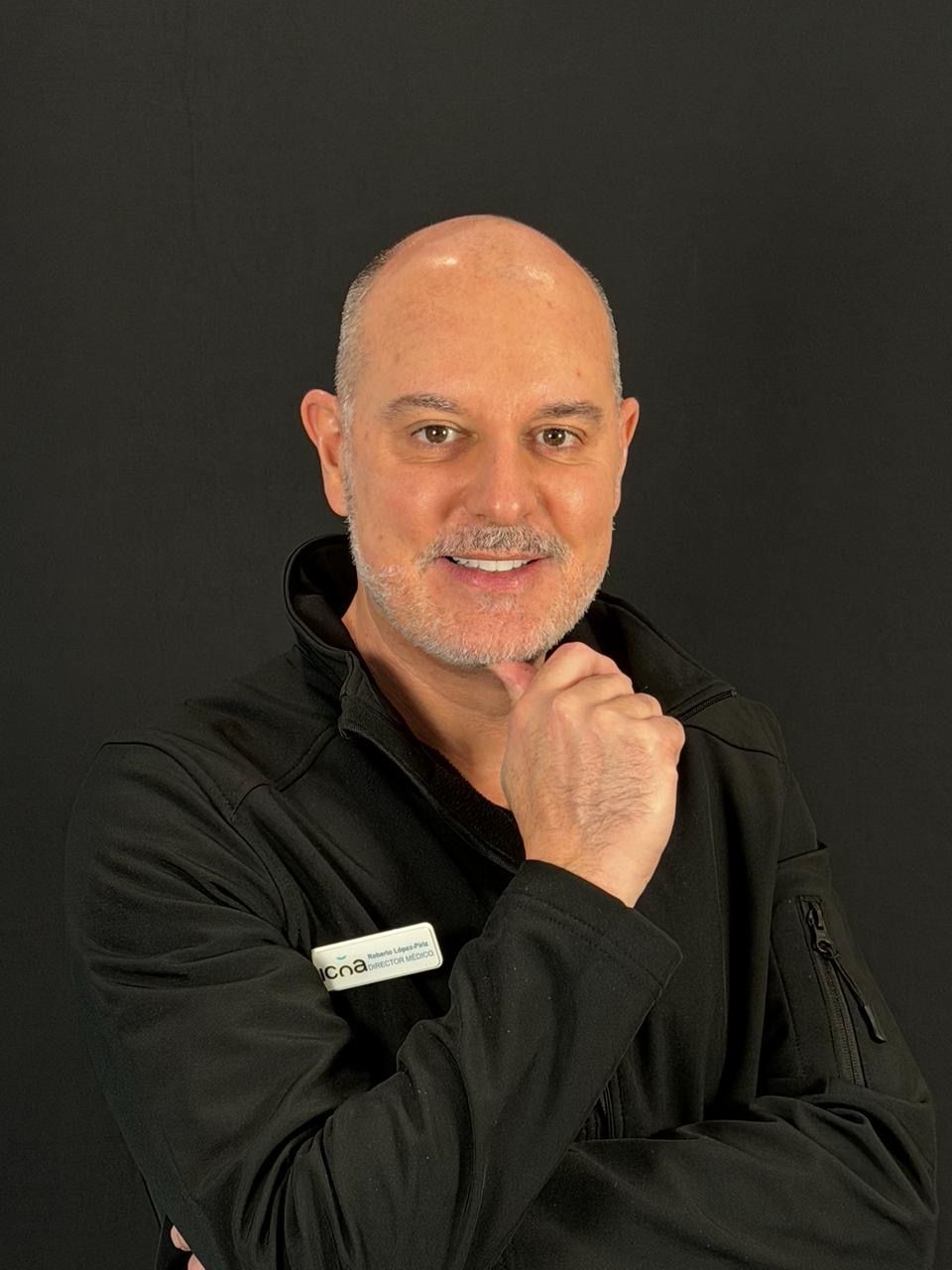
Dr Roberto Lopez-Piriz
Oral Implant Surgeon and Specialist in Aesthetic Medicine
MD DDS PhD – GDC: 332822

Ms Dalal Ahmad
Practice Manager
BA
With a strong foundation in business, Dalal began their journey at the business academy in Salzburg, Austria. After moving to London, she earned a degree in International Business Management, which paved the way for two successful managerial roles.
Now as the practice manager at Swedish Smile Clinic, Dalal combines her expertise in business and leadership to ensure every patient experiences exceptional care and service.
Fees
Examinations and Diagnosis
From
-
General dental examination £125
-
Consultation with specialist £250
-
Small digital x-rays £20
-
Large X-ray (OPG/DPT) £85
-
3D X-ray (cone beam)/per arch £180
-
Diagnostic models (lab) £600
-
Fluoride application £85
-
Emergency Appointment £250
Restorative and Cosmetic
From
-
Full aesthetic case assessment £250
-
White Fillings £325
-
Direct comp veneers (layering tech) £600
-
Crown porcelain £995
-
Veneers £1200
-
External /internal bleaching (per tooth) £200
-
Tooth whitening home pack £399
-
Zoom! Teeth Whitening (incl. take-home kit) £599
Oral Hygiene
From
-
Hygiene appointment £135
-
Deep Scale & Polish £175
-
Hygiene using air brush technique (per arch) £200
Root canal treatments
From
-
Consultation (with specialist) £250
-
Incisor £795
-
Premolar £995
-
Molar £1195
-
Surgical endodontic £850
Dental Implants
From
-
Consultation £250
-
Implants (including crown) £2850
-
Simple Sinus augmentation £950
-
Complex sinus augmentation £2000
-
Bone grafting (per area) £750
Periodontology (Gum Treatment)
From
-
Full periodontal assessment £250
-
Gum treatment per quadrant £495
-
Surgical periodontal treatment £950
Surgical treatments
From
-
Simple tooth extraction £350
-
Upper Wisdom tooth extraction £450
-
Lower Wisdom tooth extraction £575
-
Surgical tooth extraction £850
Denture
From
-
Chrome denture per arch £2500
-
Full acrylic denture per arch £1490
